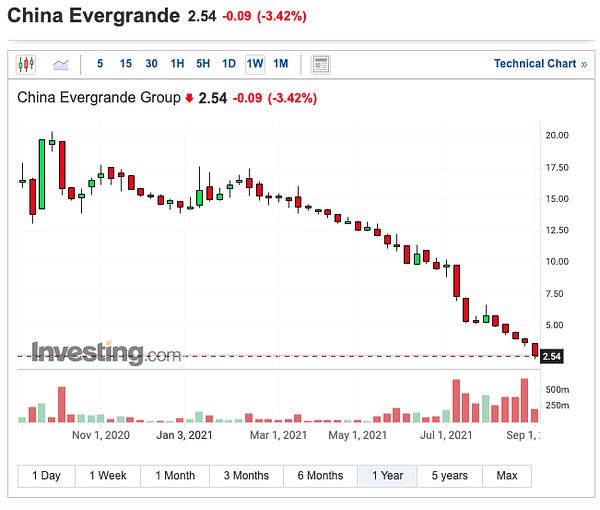First:
Structural change is much more likely to be win-win and much more likely to take place rapidly when it takes place in a time of short supply as opposed to a time of short demand:
Harry Dempsey & Dave Lee: Robots Replace Humans as Labour Shortages Bite: ’Automation gathers pace as logistics groups struggle to find workers to deal with surge in next-day deliveries…. The monotony of some jobs makes recruiting and retaining workers harder, a growing problem across a range of sectors…. In US and European warehouses, the boom in online shopping during the pandemic has accelerated the switch to automated systems and robots, which can cope more quickly and efficiently with increasingly complex orders as demand for next-day delivery rises and bottlenecks in the supply chain cause disruptions. Globally, warehouses are expected to invest $36bn in automation this year, up 20 per cent on 2020. Combined investment this year and last has jumped $1.6bn against pre-pandemic forecasts, according to research group Interact Analysis. “In the 1980s, the main reason for investing in automation was to reduce labour costs. Now for almost half the clients, their primary reason is labour availability. I talk to people every day and this is their biggest concern,” said Dwight Klappich, vice-president of research at Gartner, the advisory group. In a sign of the pressures, he said one logistics provider made 26,000 hires to get the 13,000 warehouse staff they needed because so many new recruits drop out after the first few days…
LINK: <https://www.ft.com/content/34b831a5-f6d9-4438-924d-b2999a714663>
ONE AUDIO:
Tracy Alloway & Joe Wiesenthal: Understanding Evergrande, the Chinese Real Estate Conglomerate <https://podcasts.apple.com/us/podcast/odd-lots/id1056200096?i=1000535983185>
Very Briefly Noted:
Marcus Tullius Cicero: On Octavian: ‘Laudanum aduluscentum, ornandum, tollendum…
Will Oremus: Facebook Keeps Researching Its Own Harms—& Burying the Findings: ‘A series of leaked internal reports shows Facebook knows far more than it lets on. That’s by design… <https://www.washingtonpost.com/technology/2021/09/16/facebook-files-internal-research-harms/>
George Bernard Shaw: Caesar and Cleopatra: ‘Pardon him, Theodotus: he is a barbarian, and thinks that the customs of his tribe and island are the laws of nature… <https://www.gutenberg.org/files/3329/3329-h/3329-h.htm>
Ian Leslie: Best Books on Disagreeing: ‘The Enigma of Reason: A New Theory of Human Understanding by Dan Sperber & Hugo Mercier…. Knowing Mandela: A Personal Portrait by John Carlin…. The Five Percent: Finding Solutions to Seemingly Impossible Conflicts by Peter Coleman…. Mere Civility: Disagreement and the Limits of Toleration by Teresa Bejan…. Learning Lessons From Waco: When Parties Bring Their Gods to the Negotiation Table by Jayne Docherty… <https://fivebooks.com/best-books/disagreeing-ian-leslie/>
Paul Romer: Dice, Walls & Boosters: ‘the default presumption should be that statistically significant evidence of waning against infection also implies waning against more serious outcomes. This presumption could be overturned by tight estimates that show no waning of protection against these more serious outcomes, but not by low-powered tests that generate big uncertainty intervals…
Ming Zhao: Evergrande’s Backstory: ’The world demands answers. From Fortune 500 to 1.95 Trillion in debt: How did China’s #2 real estate giant get to this point? How much cash does it actually have? Will there be a bailout? Who’s gonna get f-cked? Here goes. Story time…
Girolamo Pandolfi da Casio ditto Carlo Dossi Erba: Evergrande: ’Why most analysis is dead in water and how best to understand and navigate what’s happening? Both denialists and alarmists are getting it wrong. Let’s start by understanding this: what is happening is the result of a CCP-initiated policy change to curb leverage…
Paragraphs:
Daniel Seligson & Anne E. C. McCants: Polygamy, the Commodification of Women, & Underdevelopment: ‘A suite of social conventions—such as age gaps at marriage, bride price, sequestration, and discrimination and violence against women—are overrepresented in polygamous societies as compared to monogamous societies. This dichotomy can be explained on the grounds that polygamy produces a chronic scarcity of marriageable females. We argue that this suite, which we call gamos and which we quantify by two different methods, has demonstrably significant consequences for social, institutional, and economic development…
Jesse Rothstein: Why Cal (Not Harvard) Is America’s Top College: ‘Forbes’ #1 ranking underscores that private universities are often engines of wealth inequality…. The editors of Forbes magazine announced last week a new college rankings methodology that places more emphasis on access and outcomes for low-income students and others. The result? Public universities did much better than in traditional rankings. UC Berkeley rose to the top spot, the first time this honor has gone to a public school. Seven public universities landed in the top 25, while Harvard fell to seventh place. The notion that colleges and universities should be evaluated based on a broader standard of access and economic mobility is a crucial one that policy makers, governmental leaders and higher education institutions themselves must embrace, and fund, if we are to stop income inequality from ossifying into permanent hierarchy…. “Even if, like Harvard, they (elite privates) promise to pay full freight for the low-income applicants they accept,” the Forbes editors write, “do they take enough disadvantaged students to make that promise meaningful? UC Berkeley does a much better job at this than does Harvard. At Berkeley, 27% of undergraduates receive federal Pell Grants, aimed at helping low- and moderate-income students pay for college. At Harvard, by contrast, the share of Pell students is just 12%.”… Extensive evidence demonstrates that high quality higher education leads to enormous earnings increases and also delivers spillovers for more than just the students involved: Each young adult who is sent to college makes his or her neighbors and co-workers more productive as well. Unfortunately, we have not added capacity at public colleges and universities nearly quickly enough to keep up with demand…
LINK: <https://www.sfexaminer.com/opinion/why-cal-not-harvard-is-americas-top-college/>
Natasha Lode: The November story: ‘Russell Westergard, the Deputy [U.S.] Consular Chief in Wuhan…. writes…. “By mid-October 2019, the dedicated team at the U.S. Consulate General in Wuhan knew that the city had been struck by what was thought to be an unusually vicious flu season. The disease worsened in November. When city officials began to close public schools in mid-December to control the spread of the disease, the team passed the word to Embassy Beijing and continued monitoring. The possibility of a new viral outbreak was always on the consulate’s radar. Still, the working assumption in every scenario had always been that, as in past outbreaks like H1N1 (known as swine flu), it would appear in rural areas first and then spread to major urban centers across China.”…. Since the outset of the pandemic, many journalists have pieced together a sorry portrait of Chinese behaviour. Of a country that has consistently withheld knowledge and data on covid–19 and its origins. Whether the virus came from a laboratory, a field worker, or a food chain, China broke agreements with the world that it will promptly disclose an outbreak of a dangerous new pathogen. One important question for the world is whether virologists themselves should also be bound by these rules to inform others. Or whether foreign governments should be bound to report on countries they suspect to have outbreaks. For what it is worth, I think the virologists—indeed everyone—needs to be more open about what they knew and when. A lot of people have died. Their families deserve answers…
LINK:










Forbes should add still another criterion: Berkeley educates far more students every year than Harvard does (a point made here on several occasions). Not only is Berkeley doing a better job on the percentages of lower income students, it's doing so with much larger nominal admissions.
Structural change at the level of labour allocation isn't going to work if you can't obtain and maintain the robots.
Present circumstances strongly implies that the only way to do that involves shortening the supply chains, which in turn means creating local communities of practice. Which would be tough enough without capital return optimization insisting that you don't do that, the return is higher if the supply chain is long and the communities of practice for any one thing few.
Headline on twitter that the chip shortage is costing the auto industry a couple hundred billion dollars. Aside from desperately not needing this auto industry, that's pretty obviously not enough disruption to cause any market-driven supply-chain shortening. If that's not, well, it's because the market can't. It takes policy and the exercise of the civil power.